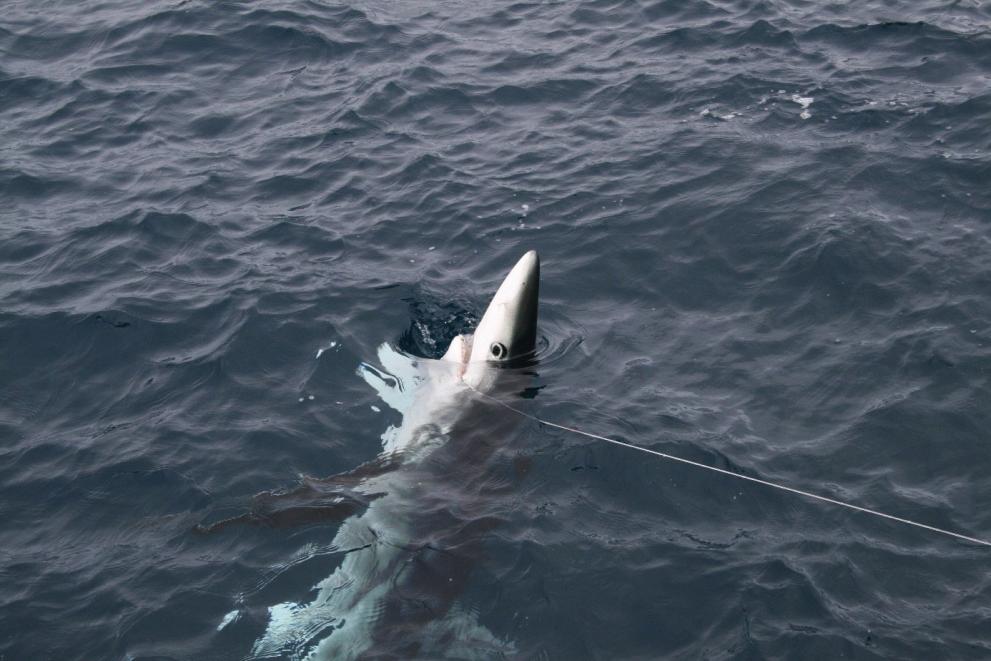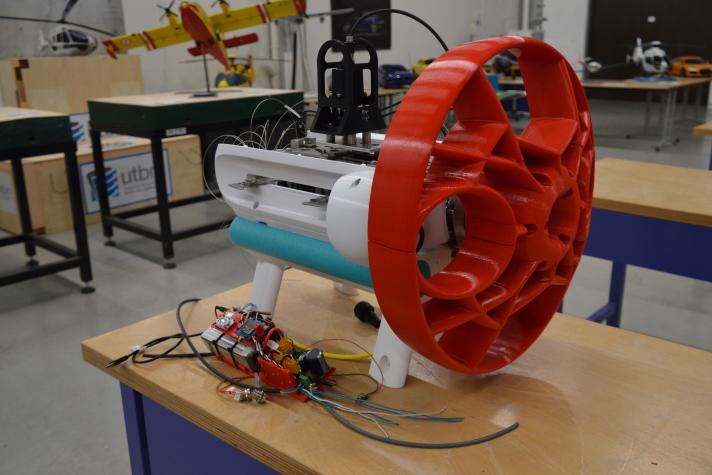
In the French outermost region of La Réunion, small-scale fishers often use surface longlines to target tuna and billfish. But with this technique, fishers sometimes accidentally catch sharks.
To address this problem, EU-funded research project ‘ASUR’ is searching for new and innovative technologies and techniques to limit the effects of longline fishing on vulnerable shark populations.
The project ‘ASUR’ brings scientists and fishers together
Scientists from the Institut de Recherche pour le Développement (IRD) teamed up with the Comité Régional des Pêches et des Elevages Marins (CRPMEM) on project ‘ASUR’ to electronically tag and release sharks after accidental capture.
Funded by the European Maritime and Fisheries Fund (EMFF), the project assesses the likelihood of sharks surviving after release, analysing the factors that resulted in improved survival rates and testing if new techniques and equipment can lead to reduced mortality.
“The EMFF is ideally suited for projects supporting innovation in the fisheries sector, as it allows for partnerships between researchers, fishers and equipment manufacturers.” said Pascal Bach, Senior Fisheries Scientist, UMR MARBEC (IRD, Ifremer, Univ de Montpellier, CNRS)
A three-phase project
Project ‘ASUR’ had three phases.
- In the first phase of the project, researchers implanted electronic tags that recorded various environmental parameters before releasing the sharks. They programmed the tags to rise to the surface and send recorded data via satellite after 30 to 60 days.
- In phase two, scientists assessed the conditions which most improved the sharks’ likelihood of survival rates. In addition to analysing the data gathered by electronic tags, this phase included experiments using different types of handling techniques on board fishing vessels.
- The third phase of the project focused on implementing the most promising techniques by designing and testing the most promising lines.
Researchers found that cutting the ‘branch line’ as close as possible to the hook contributed the most to increasing shark survival.
Longline fishers typically use one long ‘main line’, with baited hooks attached at intervals via shorter ‘branch lines’. Eliminating these branch lines by cutting closer to the hook was shown to be an effective way to reduce post-release mortality.
The local fishers involved in the project saw the new prototype as a success, because it largely reduced the risk of shark bites that sometimes happen with traditional equipment. The prototype could also be adapted for commercial production.
Higher survival rates for sharks thanks to the EMFF
The results of project ‘ASUR’ show that sharks are up to 90% more likely to survive if they are released before being hauled on-board vessels, drastically reducing the impact of longline fishing. For hauled sharks, mortality rates were found to depend on several factors, including the type of hook used, the soaking time of the longline and characteristics of the individuals caught (species, sex, etc.).
Project ‘ASUR’ helped to raise the fishers awareness that better handling practices can help avoid adding extra stress on accidentally hooked sharks. At the same time, it gave the researchers and policy makers important information about how fishers can alleviate the impact of fishing on vulnerable shark populations.
There is still a long way to go before the fishing sector eliminates the impact of fishing on shark species, but innovative research projects like ‘ASUR’ are bringing fishers closer to the sustainable harvesting of marine resources.
More information
Website of the project: ASUR
Details
- Publication date
- 22 March 2024
- Author
- Directorate-General for Maritime Affairs and Fisheries





